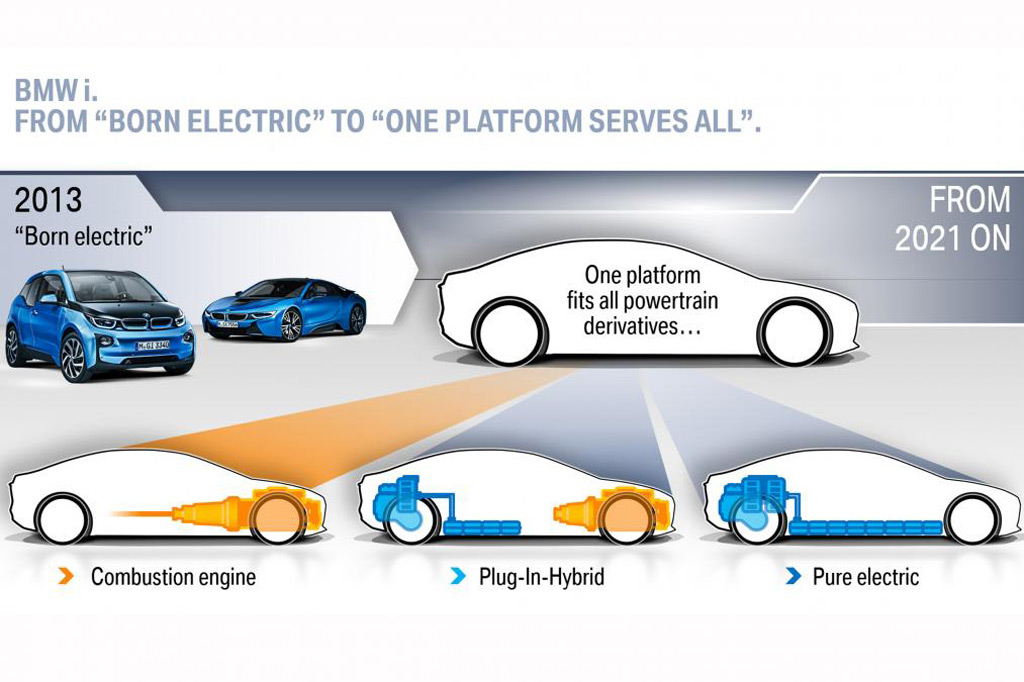The BMW Group is committed to launching 25 electrified cars by 2025, 12 of which will be battery-powered electrics.
The automaker on Tuesday revealed the full schedule for the 25 cars along with a few tentative details.
The first two cars out of the 25 have already been revealed. They are the BMW i8 Roadster and Mini Cooper S E ALL4.
According to the schedule, an electric Mini will follow in early 2019 and an electric X3, likely badged an iX3, in mid-2020. The much-hyped iNext, which might be badged an i9, will then follow in early 2021. The iNext will be a crossover of some sort and the first BMW Group vehicle to offer the automaker’s self-driving system and 5th-generation batteries. The latter will enable a range of over 400 miles on a single charge.

BMW electrification roadmap
The BMW Group’s first volume electric cars, the i3 and i8, are both based on dedicated and somewhat complex platforms. The automaker won’t be going down this route with its future electrified cars. Starting from 2021, the BMW Group’s platforms will be able to accommodate internal combustion, hybrid or pure electric powertrains. The move should help reduce costs and streamline production for the automaker.
There will be two separate platforms, one for compact cars and another for small, mid-size and full-size cars. The two platforms will be updated versions of the respective UKL and CLAR designs.
The number and power of the electric motors as well as the size of the battery will be flexible, thus enabling the BMW Group to continue to offer different grades to suite various budgets. The most powerful cars in the fleet are expected to deliver north of 800 horsepower.
The BMW Group is hoping that between 15 and 25 percent of its sales are made up by electrified cars by 2025. Many core models in the BMW and Mini brands will offer plug-in hybrid powertrains by that date, and not even the ultra-conservative Rolls-Royce will escape the electrification trend.
